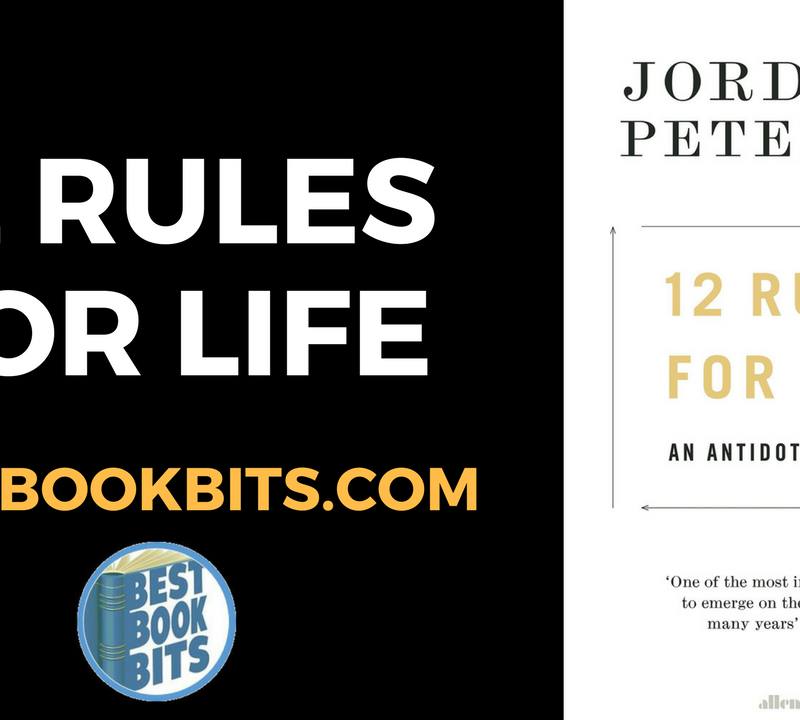CLICK THIS: STOP TRYING TO ACHIEVE YOUR GOALS BY YOURSELF AND BE COACHED TODAY HERE
CLICK THIS: DOWNLOAD THIS FREE PDF SUMMARY HERE
CLICK THESE FOR THE FOLLOWING: Book | Summaries | Course
YouTube |Spotify | Instagram | Facebook | Newsletter | Website
For far too long, those who are naturally quiet, serious or sensitive have been overlooked. The loudest have taken over – even if they have nothing to say. It’s time for everyone to listen. It’s time to harness the power of introverts.
Quiet by Susan Cain will change how you think about introverts forever
A Sunday Times and New York Times Bestseller
Our lives are driven by a fact that most of us can’t name and don’t understand. It defines who our friends and lovers are, which careers we choose, and whether we blush when we’re embarrassed.
That fact is whether we’re an introvert or an extrovert.
The introvert/extrovert divide is the most fundamental dimension of personality. And at least a third of us are on the introverted side. Some of the world’s most talented people are introverts. Without them we wouldn’t have the Apple computer, the theory of relativity and Van Gogh’s sunflowers.
Yet extroverts have taken over. Shyness, sensitivity and seriousness are often seen as being negative. Introverts feel reproached for being the way they are.
In Quiet, Susan Cain shows how the brain chemistry of introverts and extroverts differs, and how society misunderstands and undervalues introverts. She gives introverts the tools to better understand themselves and take full advantage of their strengths.
Passionately argued, superbly researched, and filled with real stories, Quiet will permanently change how we see introverts – and how you see yourself.
I have seen firsthand how difficult it is for introverts to take stock of their own talents, and how powerful it is when finally they do.
Introverts are drawn to the inner world of thought and feeling, extroverts to the external life of people and activities. Introverts focus on the meaning they make of the events swirling around them; extroverts plunge into the events themselves. Introverts recharge their batteries by being alone; extroverts need to recharge when they don’t socialize enough.
Introverts often work more slowly and deliberately. They like to focus on one task at a time and can have mighty powers of concentration…They listen more than they talk, think before they speak, and often feel as if they express themselves better in writing than in conversation…Many have a horror of small talk, but enjoy deep discussions.
Shyness is the fear of social disapproval or humiliation, while introversion is a preference for environments that are not overstimulating.
On extroversion becoming the cultural ideal in the past century:
How did we go from Character to Personality without realizing that we had sacrificed something meaningful along the way?
In the United States, Don [Chinese American] feels conversation is about how effective you are at turning your experiences into stories, whereas a Chinese person might be concerned with taking up too much of the other person’s time with inconsequential information.
We perceive talkers as smarter than quiet types–even though grade-point averages and SAT and intelligence scores reveal this perception to be inaccurate.
We don’t need giant personalities to transform companies. We need leaders who build not their own egos but the institutions they run.
Introverts as leaders:
Introverts are uniquely good at leading initiative-takers. Because of their lack of inclination to listen to others and lack of interest in dominating social situations, introverts are more likely to hear and implement suggestions….Introverted leaders create a virtuous circle of proactivity. Team members perceive introverted leaders as more open and receptive to their ideas, which motivated them to work harder.
“I am a horse for a single harness, not cut out for tandem or teamwork…for well I know that in order to attain any definite goal, it is imperative that one person do the thinking and the commanding.” -Albert Einstein
Introverts prefer to work independently, and solitude can be a catalyst to innovation. Solitude is key to creativity for introverts (and the most creative people are typically introverts).
While extroverts tend to attain leadership in public domains, introverts tend to attain leadership in theoretical and aesthetic fields.
CLICK THIS: STOP TRYING TO ACHIEVE YOUR GOALS BY YOURSELF AND BE COACHED TODAY HERE
CLICK THIS: DOWNLOAD THIS FREE PDF SUMMARY HERE
CLICK THESE FOR THE FOLLOWING: Book | Summaries | Course
YouTube |Spotify | Instagram | Facebook | Newsletter | Website
Deliberate Practice:
It’s only when you’re alone (as proven by top students and elite athletes) that you can engage in Deliberate Practice, the key to exceptional achievement. When you practice deliberately, you identify the tasks or knowledge that are just out of your reach, strive to upgrade your performance, monitor your progress, and revise accordingly.
Deliberate Practice is best conducted alone because it requires intense concentration, deep motivation (often self-generated), and involves working on the task that’s most challenging to you personally.
“You once said that you would like to sit beside me while I write. Listen, in that case I could not write at all. For writing means revealing oneself to excess; that utmost of self-revelation and surrender, in which a human being, when involved with others, would feel he was losing himself, and from which, therefore, he will always shrink as long as he is in his right mind…That is why one can never be alone enough when one writes, why there can never be enough silence around when one writes, why even night is not enough.” -Kafka
Temperament refers to inborn, biologically based behavioral and emotional patterns that are observable in infancy and early childhood; personality is the complex brew that emerges after cultural influence and personal experience are thrown into the mix.
I’m prone to wild flights of self-doubt, but I also have a deep well of courage in my own convictions. I feel horribly uncomfortable on my first day in a foreign city, but I love to travel.
“Many high-reactives become writers or pick other intellectual vocations where ‘you’re in charge: you close the door, pull down the shades and do your work. You’re protected from encountering unexpected things.” -Jerome Kagan
The heritability statistics derived from twin studies show that introversion-extroversion is only 40 to 50 percent heritable. This means that, in a group of people, on average half of the variability in introversion-extroversion is caused by genetic factors.
The parents of high-reactive children are exceedingly lucky, Jay Belsky told me. “The time and effort they invest will actually make a difference. Instead of seeing these kids as vulnerable to adversity, parents should see them as mealleable–for worse, but also for better.” Ideal parent: “Someone who can read your cues and respect your individuality; is warm and firm in placing demands on you without being harsh or hostile; promotes curiosity, academic achievement, delayed gratification, and self-control; and is not harsh, neglectful, or inconsistent.”
Rubber band theory of personality: We are like rubber bands at rest. We are elastic and can stretch ourselves, but only so much.
Over-arousal doesn’t produce anxiety so much as the sense that you can’t think straight–that you’ve had enough and would like to go home now. Under-arousal is something like cabin fever. Not enough is happening: you feel itchy, restless, and sluggish, like you need to get out of the house already.
Once you understand introversion and extroversion as preferences for certain levels of stimulation, you can begin consciously trying to situate yourself in environments favorable to your own personality–neither overstimulating nor understimulating, neither boring nor anxiety making. You can organize your life in terms of what personality psychologists call “optimal levels of arousal” and what I call “sweet spots,” and by doing so feel more energetic and alive than before.
“There is no single best [animal] personality, but rather a diversity of personalities maintained by natural selection.” -David Sloan Wilson
Scientists have found that nomads who inherited the form of a particular gene linked to extroversion (specifically, to novelty-seeking) are better nourished than those without this version of the gene. But in settled populations, people with this same gene form have poorer nutrition.
“Extroversion consists in a high rate of fertility, with low powers of defense and short duration of life for the single individual; the other [introversion] consists in equipping the individual with numerous means of self-preservation plus a low fertility rate.” -Carl Jung
Introverts also seem to be better than extroverts at delaying gratification, a crucial life skill associated with everything from higher SAT scores and income to lower body mass index.
Introverts are “geared to inspect” and extroverts “geared to respond.”
If genius is one percent inspiration and ninety-nine percent perspiration, then as a culture we tend to lionize the one percent. We love its flash and dazzle. But great power lies in the other ninety-nine percent.
“It’s not that I’m so smart. It’s that I stay with problems longer.” -Einstein
We tend to overvalue buzz and discount the risks of reward-sensitivity: we need to find balance between action and reflection.
The key to flow is to pursue an activity for its own sake, not for the rewards it brings.
Flow often occurs in conditions in which people “become independent of the social environment to the degree that they no longer respond exclusively in terms of its rewards and punishments. To achieve such autonomy, a person has to learn to provide rewards to herself.” -Csikszentmihalyi
“Success in investing doesn’t correlate with IQ. Once you have the ordinary intelligence, what you need is the temperament to control the urges that get other people into trouble in investing.” -Warren Buffett
Though Eastern relationship-honoring is admirable and beautiful, so is Western respect for individual freedom, self-expression, and personal identity. The point is not that one is superior to the other, but that a profound difference in cultural values has a powerful impact on the personality styles favored by each culture.
“Soft power” – Leadership by water rather than by fire.
“Soft power is quiet persistence. The people I’m thinking of are very persistent in their day-to-day, person-to-person interactions. Eventually they build up a team.” -Preston Ni
Free Trait Theory: fixed traits and free traits coexist. We are born and culturally endowed with certain personality traits–introversion, for example–but we can and do act out of character in the service of “core personal projects.”
Self-monitoring: Introverts who were especially good at acting like extroverts tended to score high for a trait that psychologists call “self-monitoring.” Self-monitors are highly skilled at modifying their behavior to the social demands of a situation.
The highest self-monitors not only tend to be good at producing the desired effect and emotion in a given social situation–they also experience less stress while doing so.
Three key steps to identifying your own core personal projects:
1) Think back to what you loved to do when you were a child. The specific answer you gave may have been off the mark, but the underlying impulse was not.
2) Pay attention to the work you gravitate to.
3) Pay attention to what you envy. Jealousy is an ugly emotion, but it tells the truth.
“Restorative niche” – The place you go when you want to return to your true self.
Understanding introversion changes one’s parenting style. The key is to expose your child gradually to new situations and people–taking care to respect his limits, even when they seem extreme. This produces more-confident kids than either overprotection or pushing too hard.
The school environment can be highly unnatural, especially from the perspective of an introverted child who loves to work intensely on projects he cares about, and hang out with one or two friends at a time…Worst of all, there’s little time to think or create. The structure of the day is almost guaranteed to sap his energy rather than stimulate it.
People flourish when, in the words of psychologist Brian Little, they’re “engaged in occupations, roles or settings that are concordant with their personalities.”
The way we characterize our past setbacks profoundly influences how satisfied we are with our current lives.
Those who live the most fully realized lives–giving back to their families, societies, and ultimately themselves–tend to find meaning in their obstacle.
Where we stumble is where our treasure lies.
“Our culture made a virtue of living only as extroverts. We discourage the inner journey, the quest for a center. So we lost our center and have to find it again.” -Anais Nin
Love is essential; gregariousness is optional. Cherish your nearest and dearest. Work with colleagues you like and respect.
The secret to life is to put yourself in the right lighting…Use your natural powers–of persistence, concentration, insight, and sensitivity–to do work you love and work that matters. Solve problems, make art, think deeply.
Spend your free time the way you like, not the way you think you’re supposed to…Read. Cook. Run. Write a story. Make a deal with yourself that you’ll attend a set number of social events in exchange for not feeling guilty when you beg off.
Don’t mistake assertiveness or eloquence for good ideas. If you have a proactive work force, remember that they may perform better under an introverted leader than under an extroverted or charismatic one.
Introverts are offered keys to private gardens full of riches. To possess such a key it to tumble like Alice down her rabbit hole. She didn’t choose to go to Wonderland–but she made of it an adventure that was fresh and fantastic and very much her own.
CLICK THIS: STOP TRYING TO ACHIEVE YOUR GOALS BY YOURSELF AND BE COACHED TODAY HERE
CLICK THIS: DOWNLOAD THIS FREE PDF SUMMARY HERE
CLICK THESE FOR THE FOLLOWING: Book | Summaries | Course
YouTube |Spotify | Instagram | Facebook | Newsletter | Website













